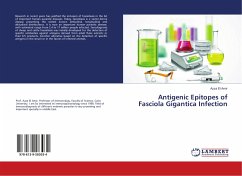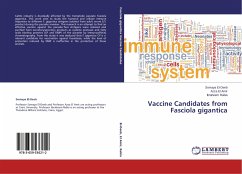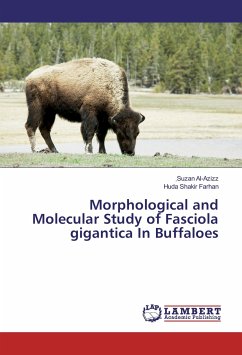Research in recent years has justified the inclusion of fascioliasis in the list of important human parasitic diseases. Today, fascioliasis is a vector-borne disease presenting the widest known latitudinal, longitudinal and altitudinal distributions. It is now an important human parasitic disease, with estimated range from 2.4 to 17 million people infected. Serodiagnosis of sheep and cattle fascioliasis was initially developed for the detection of specific antibodies against antigens derived from adult fluke extracts or their E/S products. Another alterative based on the detection of specific antigens in the serum or in the faeces of infected animals.
Bitte wählen Sie Ihr Anliegen aus.
Rechnungen
Retourenschein anfordern
Bestellstatus
Storno








